#boilerplate
Explore tagged Tumblr posts
Text

Preparations for Apollo Pad Abort Test 1 (PA-1), using Apollo Boilerplate (BP-06) spacecraft, and launch escape system on adapter ring in firing position at Apollo-Little Joe II launch area, White Sands Missile Range, New Mexico.
Date: October-November 1963
SDASM Archives: 10_0009700
#Pad Abort Test 1#PA-1#Apollo Boilerplate#Boilerplate#BP-06#Launch Escape System#LES#Rocket#NASA#Apollo Program#Abort Test#Abort#White Sands LC-36#LC-36#White Sands Missile Range#WSMR#White Sands#New Mexico#October#November#1963#my post
72 notes
·
View notes
Text
Ship Mobile Fast
Ship your AI apps in days, not weeks.
Save weeks of development time with our React Native Expo Boilerplate. In App Purchases, Open AI, Anthropic, Replicate, Fal AI, GlueStack, AI Proxy Backend, Firebase, Supabase, Admob, and more.
Ship Mobile Fast AI Wrapper is Live!🔥
For those who want to build AI applications…
Now, you can create the apps you envision in just 1-2 days.😎
Integrations with OpenAI, Anthropic, Replicate, and Fal AI. Protect your API keys from being stolen with AI Proxy Backend.
*
Pro (Best for Casual Apps):
In App Purchases (RevenueCat) Google Mobile Ads Authentication Flow Onboarding Flow Push Notifications Multi Language Support Error Tracking App/User Analytics Lifetime Updates Private Discord Channel Access Supabase⚡️ GlueStack Version StyleSheet Version
*
AI Wrapper (Best for AI Projects):
In App Purchases (RevenueCat) Google Mobile Ads Authentication Flow Onboarding Flow Push Notifications Multi Language Support Error Tracking App/User Analytics Lifetime Updates Private Discord Channel Access Firebase🔥 AI Proxy Backend (API Keys Secured🔒) Open AI & Anthropic Replicate AI & Fal AI Ready-to-Use AI Templates
*
Ship Mobile Fast: https://shipmobilefast.com/?aff=1nLNm
Telegram: ahmetmertugrul



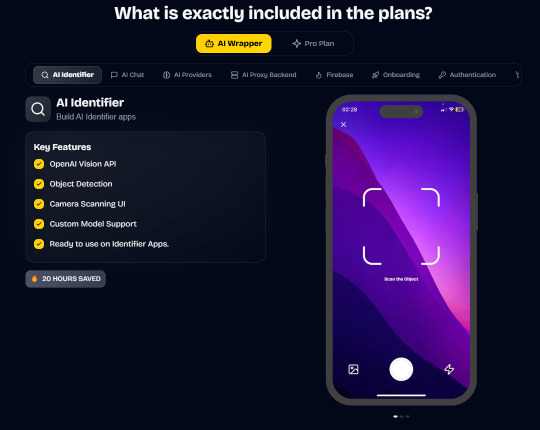
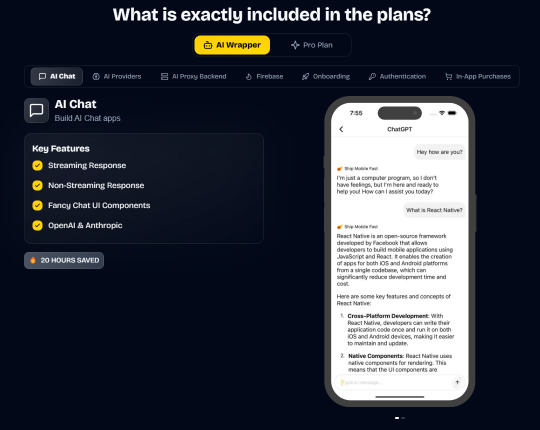






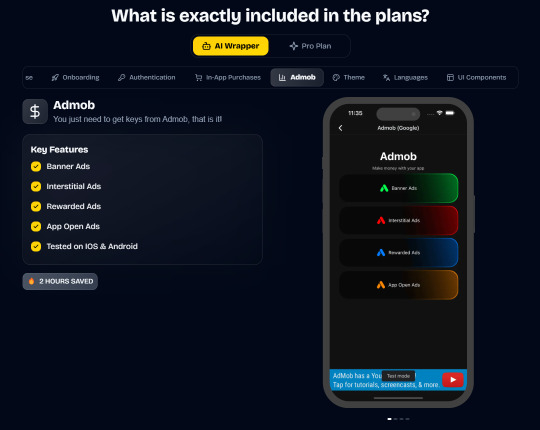


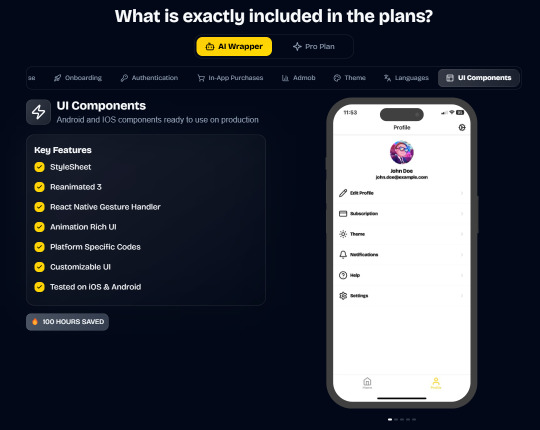
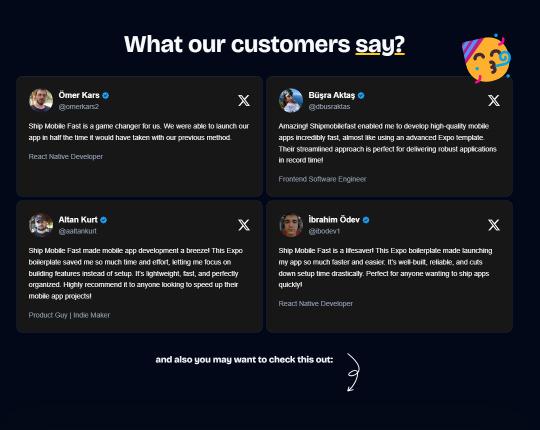
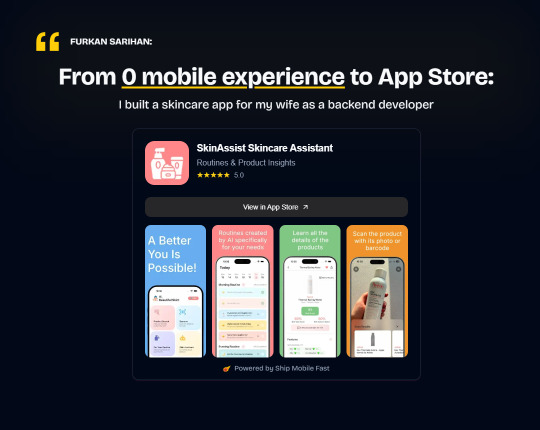

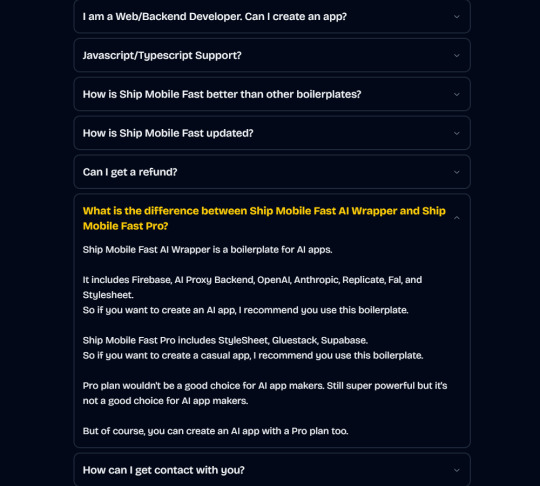

#ai#app#ship#mobile#fast#openai#claude#deepseek#proxy#api#admob#ads#firebase#supabase#falai#backend#ui#ux#replicate#revenuecat#google#expo#boilerplate#template#wrapper
2 notes
·
View notes
Text
Standard Clauses in Contracts: What They Are And How To Draft Them
Standard Clauses in Contracts:What Are Standard Clauses in Contracts? Common Standard Clauses in Contracts The Importance of Standard Clauses in Contracts What to Be Careful About When Drafting Standard Clauses1. Tailoring to the Specific Jurisdiction 2. Overly Broad or Unenforceable Clauses 3. Ambiguity in Key Terms 4. Lack of Consistency with Other Contract Terms 5. Failing to Address Unique Risks 6. One-Sided Clauses 7. Inadequate Attention to Dispute Resolution 8. Ignoring Future Changes in Law Best Practices for Drafting Standard Clauses
Standard Clauses in Contracts: A Comprehensive Guide
What are contractual standard clauses? Contracts are the backbone of most business transactions, ensuring that the rights and obligations of all parties involved are clearly defined. While every contract is unique, most include certain standard clauses, also known as boilerplate clauses, that provide a legal framework governing the agreement. These clauses ensure that the contract functions smoothly, minimizing ambiguity and reducing the potential for disputes. In this article, we’ll explore the most common standard clauses in contracts, their significance, and why they are essential in contract drafting.

What Are Standard Clauses in Contracts? Standard clauses, sometimes referred to as boilerplate clauses, are pre-drafted provisions that are commonly found in most contracts. These clauses are used across various types of agreements, from employment contracts to sale agreements, rental contracts, and service-level agreements. The purpose of these clauses is to address the procedural aspects of a contract rather than its specific subject matter. They help clarify how disputes will be resolved, how communication between the parties should occur, and the legal jurisdiction governing the contract. Though these clauses may seem secondary to the core of the agreement, they play a critical role in preventing legal misunderstandings and disputes. Common Standard Clauses in Contracts - Governing Law Clause The governing law clause identifies which jurisdiction's laws will be applied to interpret the contract. This is particularly important in international agreements where the parties might be operating under different legal systems. For example, a contract between a US and a UK business may state that it is governed by the laws of New York or England. Example: "This Agreement shall be governed by and construed in accordance with the laws of the State of , without regard to its conflict of law provisions." - Dispute Resolution Clause Disputes are inevitable in contractual relationships. The dispute resolution clause specifies how conflicts between the parties will be resolved—whether through litigation, arbitration, or mediation. Some contracts may also require disputes to be resolved in a specific jurisdiction or court. Example: "Any dispute, controversy, or claim arising out of or in connection with this Agreement shall be resolved through binding arbitration in , in accordance with the rules of the ." - Force Majeure Clause A force majeure clause excuses a party from fulfilling their contractual obligations due to events outside their control, such as natural disasters, war, or pandemics. This clause helps protect parties from liability for non-performance when unforeseen circumstances make contract execution impossible. Example: "Neither party shall be liable for any failure to perform its obligations under this Agreement if such failure is caused by circumstances beyond its reasonable control, including, but not limited to, acts of God, war, terrorism, and natural disasters." - Entire Agreement Clause This clause ensures that the contract represents the full and final understanding between the parties. It supersedes any prior agreements, representations, or understandings, whether oral or written. Example: "This Agreement constitutes the entire understanding between the parties hereto with respect to the subject matter hereof and supersedes all prior agreements, understandings, and negotiations, both written and oral." - Confidentiality Clause A confidentiality clause prevents the parties from disclosing sensitive information that was shared during the negotiation or execution of the contract. This is particularly common in non-disclosure agreements (NDAs) and employment contracts. Example: "The parties agree to keep all confidential information received from the other party in connection with this Agreement strictly confidential and not to disclose such information to any third party without the prior written consent of the other party." - Severability Clause The severability clause ensures that if any part of the contract is found to be invalid or unenforceable, the remaining provisions will still be valid. This clause protects the contract from being entirely voided due to a single unenforceable term. Example: "If any provision of this Agreement is found to be invalid or unenforceable, the remainder of this Agreement shall remain in full force and effect." - Termination Clause A termination clause outlines the conditions under which the contract can be terminated by either party. It usually includes the notice period required for termination and the circumstances that may lead to contract cancellation. Example: "Either party may terminate this Agreement upon days' written notice to the other party, or immediately in the event of a material breach of this Agreement." - Assignment Clause This clause specifies whether the parties are allowed to transfer their rights and obligations under the contract to a third party. It is particularly relevant in agreements involving intellectual property or financial rights. Example: "Neither party may assign or transfer its rights or obligations under this Agreement without the prior written consent of the other party." - Indemnity Clause The indemnity clause obligates one party to compensate the other for any losses or damages that arise from breaches of the agreement or other specific actions. This clause is particularly common in service contracts, where one party may be at risk of damages due to the other’s actions. Example: "The Service Provider shall indemnify and hold harmless the Client from any and all claims, damages, losses, and expenses, including attorney's fees, arising out of the Service Provider's performance of this Agreement." - Waiver Clause The waiver clause specifies that any failure to enforce a provision of the contract will not be considered a waiver of future enforcement of that provision. This ensures that parties do not inadvertently lose their rights by failing to act on a breach immediately. Example: "No waiver of any provision of this Agreement shall be deemed or shall constitute a waiver of any other provision, whether or not similar, nor shall any waiver constitute a continuing waiver." The Importance of Standard Clauses in Contracts Standard clauses, although often overlooked, play an integral role in the structure and enforceability of a contract. They help to mitigate risk by ensuring that both parties have agreed on how potential issues will be handled, from breaches to unforeseen external events. In addition, they contribute to the clarity and precision of the contract, reducing the likelihood of future disputes. When drafting or reviewing a contract, it is essential to carefully consider these clauses. Though many boilerplate clauses may seem routine, they can have significant legal consequences. Consulting with a legal professional is often advisable to ensure that the clauses meet the specific needs of the agreement and are enforceable in the relevant jurisdiction. What to Be Careful About When Drafting Standard Clauses While standard clauses offer structure and predictability, they are not "one-size-fits-all." Careful drafting is essential to avoid costly mistakes or unintended consequences. Here are several key considerations when incorporating boilerplate clauses into contracts: 1. Tailoring to the Specific Jurisdiction Many businesses make the mistake of using standard clauses without considering local laws. Contract laws vary significantly between jurisdictions, and a clause that is valid in one location may not hold up in another. For instance, certain jurisdictions may impose specific requirements for dispute resolution, limit indemnity clauses, or invalidate waivers of liability. Key considerations: - Ensure the governing law clause aligns with the legal system most favorable to your case. - Understand the local courts' stance on force majeure, indemnity, and non-compete clauses. 2. Overly Broad or Unenforceable Clauses Clauses such as non-compete, confidentiality, and indemnity often face legal challenges when they are too broad or unfair. Courts may strike down parts of the contract if they find them unreasonable or unenforceable. For example, a non-compete clause that prevents an employee from working in the same industry for an indefinite period may be void in many jurisdictions. Key considerations: - Be mindful of reasonableness in drafting restrictive covenants like non-compete clauses, balancing the interests of both parties. - Avoid drafting force majeure clauses so broadly that they become unenforceable or lead to disputes over interpretation. 3. Ambiguity in Key Terms Ambiguity is one of the most common causes of contractual disputes. Even though standard clauses are designed to prevent ambiguity, they can themselves become problematic if the language used is unclear or too vague. Terms like "reasonable efforts" or "commercially reasonable" may leave too much room for interpretation, potentially leading to disputes. Key considerations: - Use clear, precise language that all parties understand. - Define key terms where necessary, especially for clauses relating to performance standards, indemnity, and confidentiality. 4. Lack of Consistency with Other Contract Terms It’s vital that standard clauses are consistent with the core terms of the contract. A common pitfall is to include a boilerplate clause that contradicts or overrides another provision in the agreement, leading to confusion or legal disputes. For example, a contract might contain a dispute resolution clause that requires arbitration, but elsewhere suggests that disputes should be resolved in court. Key considerations: - Review the contract as a whole to ensure internal consistency. - Make sure that procedural clauses, such as those for dispute resolution or jurisdiction, align with the substantive parts of the agreement. 5. Failing to Address Unique Risks Standard clauses can sometimes be too generic to cover the unique risks of a specific transaction. For instance, a force majeure clause may not be sufficient if a business operates in a politically unstable region, or an indemnity clause may need to be broader in high-risk industries like construction or manufacturing. Key considerations: - Tailor boilerplate clauses to address industry-specific risks. - Ensure that risk-related clauses, such as indemnity, force majeure, and limitation of liability, are broad enough to cover specific risks but not so broad that they risk being unenforceable. 6. One-Sided Clauses Many contracts are drafted with boilerplate clauses that heavily favor one party, which can lead to unbalanced obligations. For example, an indemnity clause that only protects one party might deter the other from entering the contract or lead to legal challenges. Courts are generally more inclined to scrutinize agreements that appear unfair or overly one-sided. Key considerations: - Strive for balance between the parties’ rights and obligations. - Avoid excessive liability limitations or clauses that shift all the risk to one party. 7. Inadequate Attention to Dispute Resolution Parties often overlook the significance of the dispute resolution clause, assuming disputes won’t arise. However, how disputes are resolved can have a major impact on the cost and duration of the conflict. For example, arbitration may be faster and less costly than litigation, but it might not be the best option for every dispute. In some cases, mediation may provide a more amicable resolution process. Key considerations: - Assess whether arbitration, mediation, or litigation is the most suitable form of dispute resolution. - Be specific about the location and rules that will govern any arbitration or litigation. 8. Ignoring Future Changes in Law Laws can change, rendering certain clauses invalid or unenforceable. For instance, data protection laws have evolved rapidly in recent years with the introduction of regulations like GDPR. Contracts that fail to comply with these updated laws may face penalties or even termination. Key considerations: - Regularly review and update contracts to ensure compliance with evolving legislation. - Include a severability clause to ensure the remainder of the contract remains enforceable if a specific provision becomes void. Best Practices for Drafting Standard Clauses To avoid these pitfalls, consider the following best practices when drafting or reviewing standard clauses: - Consult legal professionals: Always consult with a lawyer who understands the relevant jurisdiction and industry-specific risks. - Customize boilerplate clauses: Tailor the standard clauses to the specific contract and context, rather than copying them from another agreement. - Use plain language: Avoid legal jargon and ambiguous terms that may cause confusion. - Review periodically: Ensure that the clauses are periodically reviewed and updated to reflect changes in law or business circumstances. - Balance fairness and protection: Draft clauses that protect your interests while ensuring fairness to the other party, avoiding one-sided terms that could be contested in court. Standard clauses, while often regarded as routine, are essential for structuring a robust and enforceable contract. However, care must be taken to draft them thoughtfully, with attention to jurisdictional differences, clarity, and fairness. By avoiding common pitfalls and applying best practices, you can ensure that your contracts minimize legal risks and offer maximum protection to all parties involved. Understanding standard clauses in contracts is critical for anyone involved in business, legal, or personal agreements. By including well-drafted boilerplate clauses, parties can protect themselves from unforeseen risks and ensure smoother execution of the contract. Whether you are drafting a contract or entering into an agreement, these clauses provide the legal framework necessary for fair and predictable outcomes. Read the full article
0 notes
Text
What is Boilerplate in Literature? A Comprehensive Guide

As you delve deeper into the world of literature, you may encounter the term “boilerplate.” However, what does it mean specifically in this context?
Standardized text that is used frequently with little modification is referred to as boilerplate. With prewritten sections that can be modified for different purposes, it resembles the outline of a paper.
For writers, editors, and everyone else involved in literary output, knowing boilerplate is essential since it keeps uniformity and streamlines procedures. Let’s examine boilerplate’s definition, traits, and usage in literature.
Historical Background
The term “boilerplate” originally comes from the newspaper industry, where it referred to pre-written content used in multiple publications.
It was later adopted into various fields, including literature, to describe text that is reused without significant changes. Over time, boilerplate has evolved from its origins in print media to become a common element in digital and academic writing as well.
Characteristics of Boilerplate Text
Text that is considered boilerplate is repetitious and uniform. It lacks the individuality of personalized content and is frequently generic.
Boilerplate, for instance, might show up in literary works as recurrent introductions or formulaic descriptions. Although the content may feel less unique and intimate as a result of its predictability, it can also be beneficial.
Types of Boilerplate in Literature
Boilerplate can manifest in various forms within literary works:
Introduction Sections: Many books, articles, or papers begin with a boilerplate introduction that outlines the content in a standardized manner.
Descriptions and Biographical Details: Authors often use boilerplate to provide uniform descriptions of characters or authors, especially in academic and reference works.
In academic writing, boilerplate is frequently used in research papers and journal articles. For example, common sections like literature reviews or methodology descriptions might include boilerplate text to ensure consistency across different studies....Continue reading
#book publication#writing#publishing#book writer#self publishing#book writing#book authors#book#book publishing#literature#literacy#self publishing platform#book publication platform#book publishing companies#book publishing houses#self publishing process#boilerplate#english literature
1 note
·
View note
Text
Efficiency and productivity are paramount in software development. Boilerplate code, which is pre-written code snippets that offer a skeleton structure for developers, can streamline such issues in the process. Boilerplate code is the pillar of scalability, maintainability, and collaboration.
The boilerplate code helps in setting up the dependencies and performs routine tasks. In this blog, we discuss 13 benefits of using Boilerplate code in software development. read this blog.
0 notes
Photo
Boilerplate was a fine book.
youtube

699 notes
·
View notes
Text
Python Image Scraper
This is a simple image scraper that should work on most sites. Remember to check the sites robot text before implementing it. Made this after getting rejected for an identical task on Upwork. So here it is, as it is. import requests from bs4 import BeautifulSoup from urllib.parse import urlparse, urljoin from pathlib import Path def get_all_images(url, n,…

View On WordPress
0 notes
Text
I was stubbornly not wanting to cry at dandadan I was like "single mom doing sex work supporting her child backstory! obviously some guys are gonna come attack her and her kid will die or be taken I've seen this I refuse to cry for this basic ass woman suffers story wanting to tug my heartstrings I REFUSE"
but then it was so well directed and Momo's reaction and the hug and "to a kinder world" and I cried anyway. you win this one dandadan.
#goes to show even a boilerplate story you're kind of tired of can really shine is executed well#the ballet sequence...#dandadan#dandadan spoilers#i'm. hm. about dandadan having all the yokai backstories so far be about bad things happening to women because I don't think it really has#that much to say about it other than “violence against women is bad actually"#but I do like that Momo and now Aira have been the ones to put them to rest. While Okarun is just. it ain't about him. That part feels#deliberate at least#this one was more developed than the turbo granny OH BTW GIRLS GOT MURDERED IN THIS TUNNEL ITS SAD last minute footnote at least
232 notes
·
View notes
Text

genuinely feeling so much peace in my heart finding out that gaiman was stupid enough to sign a morality clause with dark horse while knowing he did all of that shit. omfg how many of his contracts have a morality clause
#has he not been... READING... his contracts...??#btw trying to find the boilerplate dark horse morality clause if anyone has it
67 notes
·
View notes
Text
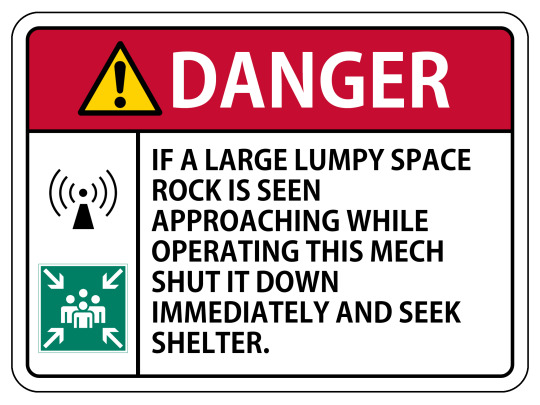
116 notes
·
View notes
Text


The Apollo Boilerplate (BP-06) being prepared for Pad Abort Test 1 (PA-1) at the White Sands Missile Range (WSMR), New Mexico. This was the first abort test of the Apollo spacecraft, launched on November 7, 1963.
“A test version of the Apollo moon capsule will be fired 5,000 feet into the air Thursday at the White Sands (New Mexico) missile range. The escape tower rockets will lift the capsule from the pad. After reaching the desired altitude, three parachutes will return the capsule to earth.
NASA Photo via AP Wirephoto”
Note: the clam-shell structure next to the vehicle to shelter it against the elements.
Date: 1963
Posted on Flickr by Mike Acs.
NASA ID: S63-3293, 63-Apollo-206
#Pad Abort Test 1#PA-1#Apollo Boilerplate#Boilerplate#BP-06#Launch Escape System#LES#Rocket#NASA#Apollo Program#Abort Test#Abort#White Sands LC-36#LC-36#White Sands Missile Range#WSMR#White Sands#New Mexico#1963#my post
55 notes
·
View notes
Text
Mad that my magazine's first ever full publish is going to be an Oasis article........
#anyone want to read it? I titled it 'In Defence of Oasis' and that made me laugh#I am cleaning up some last grammar and then hitting publish! Finally getting this magazine off the ground!#Ignore the design of the site for now; it's quite boilerplate Wordpress#Britpop#Oasis#Oasis mutuals? What do think it's about#music#It's so off brand for me
38 notes
·
View notes
Text
We really do not need a statement from Critical Role about the goddamn Israel-Hamas War.
#cr discourse#they play goddamn D&D for a living#We don't need some boilerplate statement that y'all are gonna be pissed off at them about anyway#If they wanna do a Doctors Without Borders fundraiser have at it#anyway there's a heirarchy of folks whose opinions on this kind of thing I care about and want to hear from#and most shades of actor/entertainer are at the way bottom of that list
77 notes
·
View notes
Text
The Unreasonable Effectiveness of Linux Workstations, a fantastic video on productive computing by No Boilerplate.
Creatives, gamers, and casual computer users alike: take a peek!
youtube
Full transcript available on GitHub.
Cute anecdote time: I switched my (somewhat tech savvy) 70-year-old grandparents over to Ubuntu Linux after the battery in their Windows 10 laptop died on them.
It’s been two years since the switch. I have received zero calls from them about software updates, strange behavior, or frustrating driver issues. They love it!
It took less than 45 minutes to back up their data, install Ubuntu on a new machine, and restore their files and applications. Add another 15 minutes of teaching them how to access settings and update software and… it’s done!
I believe most people could benefit from switching to Linux in noticeable, appreciable ways on a daily basis—not just in terms of performance, but productivity, ease of use, and peace of mind.
Gotta love free software!
87 notes
·
View notes
Note
Call me crazy but I think George is allowed to have an opinion about how they adapt his work. His rights have been sold to HBO, there's nothing much he can do but give his opinion and hope they respect it. He's already been hinting at things in talks and in posts that he doesn't agree with some changes and think showrunners want to make it their own too much and clearly there's been issues behind the scenes with HBO/WB. Shockingly many people still liked GoT despite his and many other book stans complaints. You can like something without it getting George's stamp of approval. People need to be more confident in their opinions. And George can do whatever he wants cause he's the author and without him this world wouldn't even exist though I'm sure his criticism will mostly be towards HBO and he'll continue being shady to the writers in blog posts praising other adaptations as he did with Shogun
dont want to speculate on his recent behavior until that blog post he’s been ominously hinting at drops and we know all the information so i will be pointedly silent for now
34 notes
·
View notes